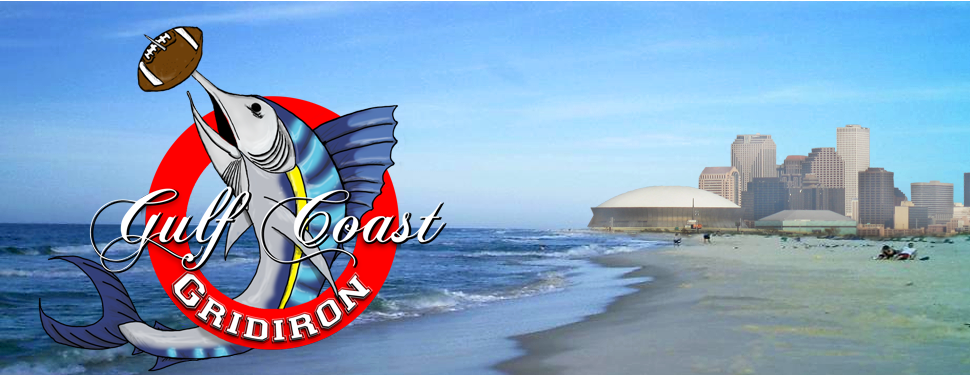Throw a Heisman Trophy winning running back in front of the Saints on Draft Day and they just can't help
themselves. It's like dangling a T-Bone Steak in front of a salivating bulldog, and they will trade away their life savings and first born to put themselves in position to make the pick if necessary. Since 1981, the Saints have drafted four Heisman Trophy Running Backs: George Rogers, Ricky Williams, Reggie Bush and most recently, Mark Ingram. You can also include Earl Campbell in the mix, whom the Saints traded for in 1984, reuniting then Coach Bum Phillips with his former All Pro running back from the Houston Oilers. Obviously, there was a fairly wide time gap between Rogers and Williams, but the irrestible Heisman attraction never faded away.
The jury is still out on Ingram after just one season, but it is safe to say that Rogers, Williams and Bush never
met the high expectations that Saints fans had for them when their names were called within the top five picks on Draft Day. Dealing with "off the field issues" has been a common denominator that plagued our first three Heisman draft choices. Rogers and Williams each battled highly publicized drug use, while Bush dated Kim Kardashian which was probably even more damaging; and he also had some lingering unfinished business from his college days at USC that became an added distraction.
So, what does the Saints disappointing track record with Heisman Trophy running backs mean for Mark Ingram's career? Maybe nothing at all. But he didn't exactly burst out of the gate in his rookie season. Character issues certainly don't seem to be a problem with Ingram, but like many great running backs he has shown to be injury prone. After missing two games mid-season with a bruised heal, a sprained toe kept Ingram out of the last 4 games, and he ended the season rushing for 474 yards on 122 carries and scoring five touchdowns.
Even with the setback from injuries, Ingram's non-spectacular numbers must be put in perspective when comparing to the Saints other Heisman winners. When Rogers, Williams and Bush were drafted they were each expected to be the savior from the very first moment they put the Black and Gold jerseys over their custom made suits on the NFL Draft stage. When Ingram was drafted the Saints already had their savior in Drew Breesus, they just needed to add a downfield running dimension added to the roster of disciples, which Bush obviously lacked. However, it was free agent Darren Sproles that proved to be the best weapon in providing both a vertical running game along with being dangerous in open space as Bush was.
With the addition of Sproles to the arsenal of other playmakers that Brees has at his disposal to distribute the
ball to, evaluating the success of Ingram can be tricky. Playing tailback in the Saints pass-oriented system, Ingram would be getting less carries as the featured back anyway. But sharing time in the backfield with the very capable Sproles, Pierre Thomas and even Chris Ivory, his potenital number of carries per game are even less likely to reach any significant level.
At 5-9 and 215 lbs, Ingram's compact size and acceleration has often drawn comparions to all time NFL leading rusher Emmitt Smith. However, the concept of NFL running backs carrying the ball 25-30 times a game and wearing down defenses is so 1992, and Coach Sean Payton is definitely an offensive innovator, not a traditionalist.
Considering Ingram's circumstances, should his success be judged by the traditional criteria of rushing yards and touchdowns? Or should it be by yards per carry? The "team oriented" approach to judging Mark Ingram would be if his career with the Saints helps bring the team another or multiple Lombardi Trophies, regardless of statistics. However, Reggie Bush for all of his faults did that, and he was gone after only one more season.
My guess is that when it comes down to it, Mark Ingram's value to the Saints will ultimately be judged by the same way it is for every other NFL player, regardless of former Heisman Trophy winner or not. And that is by the principle that overrides both statistics and championships, presenting itself in the form of the question, "What have you done for me lately?"
